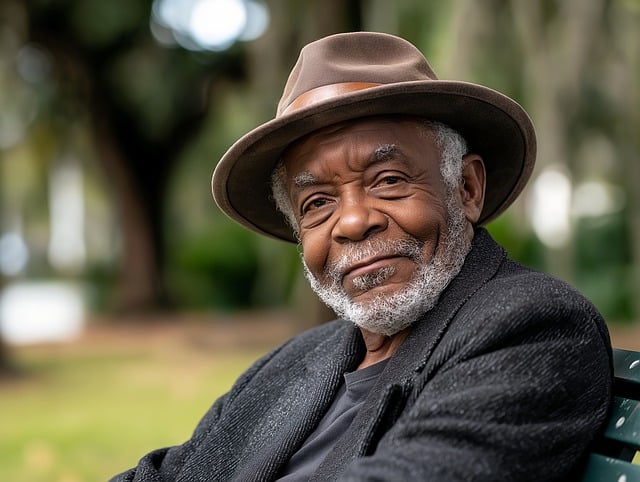Elderly Companion Services provide vital support for seniors, addressing the critical issue of loneliness by offering consistent and meaningful interactions. These services are designed to cater to individual preferences and abilities, ensuring a personalized experience that can improve emotional well-being and cognitive health through social stimulation. They also act as a bridge to community resources, enriching the lives of older adults by providing regular human contact, which instills confidence in both seniors and their families. These companions are trained to assist with daily tasks, promote healthy routines, and offer a reliable presence that can significantly enhance the quality of life for the elderly, contributing to their overall health and happiness. In essence, Elderly Companion Services are not only a response to the challenges of isolation but also play a crucial role in fostering a more interconnected and healthy community among our aging population.
Every individual craves meaningful connections, a need that becomes increasingly important in our elder years. As communities evolve and families live apart, loneliness among seniors has emerged as a pressing concern. This article sheds light on the pivotal role of Elderly Companion Services in mitigating this isolation. By offering more than just company, these services enrich the lives of our aging population through tailored interactions that resonate with their personalities and pastimes. We will explore how these compassionate caregivers not only provide a vital lifeline to those who might otherwise be forgotten but also strengthen community bonds, fostering an environment where every elder feels seen, heard, and cherished.
- The Role of Elderly Companion Services in Combating Loneliness Among Seniors
- – Highlighting the importance of social interaction for the elderly, this section can discuss the prevalence of loneliness in older adults and how companion services are addressing this issue by providing meaningful engagement and companionship.
The Role of Elderly Companion Services in Combating Loneliness Among Seniors

Elderly companion services play a pivotal role in addressing the pervasive issue of loneliness among seniors, particularly those who live alone or lack regular social interaction. These services are designed to provide consistent and meaningful engagement for older adults, fostering a sense of companionship that can significantly improve their emotional well-being. By offering a variety of activities tailored to the interests and capabilities of each individual, these programs help break the isolation often experienced by the elderly. This personalized approach ensures that seniors receive the social stimulation necessary for cognitive health, as well as the emotional support that can alleviate feelings of depression and anxiety associated with loneliness. Furthermore, companion services often facilitate connections to broader community resources, enhancing the overall quality of life for those in need. The consistent presence of a caring individual or group can also provide peace of mind to both the seniors and their families, knowing that there is regular human contact and assistance available. Through these tailored interactions, elderly companion services not only combat loneliness but also contribute to a healthier, more connected community.
– Highlighting the importance of social interaction for the elderly, this section can discuss the prevalence of loneliness in older adults and how companion services are addressing this issue by providing meaningful engagement and companionship.

The golden years of life, often associated with retirement and leisure, can also be a time when social isolation becomes a pervasive challenge for many elderly individuals. Studies consistently show that social interaction is crucial for maintaining both physical and mental health among the elderly. Loneliness in this demographic has been linked to a host of negative outcomes, including cognitive decline, depression, and increased mortality rates. Recognizing this critical need for companionship, elderly companion services have emerged as a vital resource. These services offer more than just company; they provide meaningful engagement through activities tailored to the interests and abilities of each senior. By facilitating regular visits, these services not only alleviate feelings of isolation but also promote a sense of belonging and purpose. The impact of such companionship is profound, as it can lead to improved overall well-being and quality of life for seniors, ensuring that their later years are enriched with social connections and meaningful interactions.

The importance of maintaining social connections, particularly for the elderly, cannot be overstated. As individuals age, they may face challenges that make it difficult to engage with their community as frequently as they once did. This is where elderly companion services emerge as a vital resource. These services are designed to provide companionship and support to seniors who live alone, ensuring they have regular social interaction which can significantly enhance their quality of life. The benefits of such services extend beyond just combating loneliness; they also contribute to the overall well-being of the elderly by promoting mental stimulation, emotional health, and sometimes even physical activity. Trained companions can assist with daily tasks, encourage healthy habits, and offer a consistent presence that can alleviate feelings of isolation. Through personalized visits tailored to the individual’s preferences and needs, elderly companion services facilitate meaningful connections that can enrich the lives of seniors, foster community bonds, and provide peace of mind for their families.
Community-based elderly companion services have emerged as a vital resource in fostering meaningful connections for seniors facing loneliness. These services not only offer companionship but also ensure that isolated elders receive regular, engaging interaction that can significantly enhance their well-being and quality of life. As we recognize the societal importance of addressing senior isolation, these initiatives stand out as effective solutions, creating a positive impact on the lives of lonely elders across communities. It is through such personalized and empathetic support systems that we can bridge the social gaps and enrich the daily experiences of our aging population.




